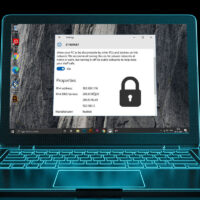The Need For Encryption Technology For government Contraction


Just like private citizens, you should be concerned about e-commerce and want to know where your money is being used. With the popularity of e-commerce and the internet, the issue of money laundering is becoming more and more important.
The U.S. government is not immune from this corruption. It has been estimated that 90% of all government contracts are fraudulent. These types of contracts where companies are expected to give broad rights for ambitious projects are susceptible to corruption. Fraudulent tend to get approved based on who the contractor is, and no due diligence is done during the bidding process.
Contracts that would give the private sector the right to operate are easily compromised. For example, airports and seaports are potential targets for terrorists or other undesirables. Contractors could be designs or hijackers of contracts where badly planned and executed projects.
Right to Intercept
The fact that contracts are an issue of money laundering or government procurement reflects that money is corrupt. Intercepting contracts will help keep money channels in the right direction. It’s not uncommon for a company to lose money or materials after an assigned contract. But the right to intercept a contract is an advantage that companies and politicians alike cannot ignore.
The smugglers Plus the Pirates
E-commerce is dynamic and allows consumers and shoppers to shop, Compare, find and download Arab Glamour figures for less than cost. Because of the fact that unauthorized sites are offering counterfeit and pirated products, the illicit market continues to grow. Protecting intellectual property is a serious matter for government contractors.
Recently, the U.S. government contracted with a company to protect government networks. This is done through the Defender Network Facility (Denial of Service) or the Cyberespionage Warfare Notification Program.
The Cyber Defense Weapon System or DDWNPS is a set of capabilities that helps protect military and civilian networks from DDOS attacks. It is designed to degrade DDoS attacks and countermeasures such as protecting against distributed denial of service attacks and e-mail floods.
The Air Force Research Laboratory or Lackland Air Force Base is home to the U.S. Cyber Command. General Keith Alexander, Secretary of the Army, selected Kleiner, a now-defunct firm, to perform critical engineering work for the cyber command in Washington, D.C. In February 2005, Kleiner won a $16.7 million contract from the Defense Department to provide critical computer infrastructure withstood by the Army.
The 10-year, $305 million contract involves key services such as cyber security, network management, cybersecurity, series management and administration, and research and development. It will help ensure U.S. computer networks can survive and operate effectively.
Lackland says it has processed more than 65,000 network security matters in the past year. It plans to increase that number this year.
The firm’s residents include personnel from the various Defense Department locations across the country. Companies with defense-related investments include Carbonite, AlertNet, BASE, Corillian and XERO.
According to a July report by SNL Financial, the unemployment rate in computers and information systems is closer to 10 percent, compared with 4.5 percent for all sectors of the U.S. economy.





